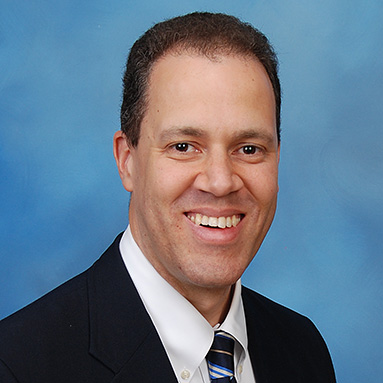WPI’s full-time or part-time masters in materials science lets you work among many disciplines to learn how best to work with, develop, and improve the uses of a nearly endless arrangement of materials in scales such as nano, micro, and macro.
In our state-of-the-art labs, you’ll apply new materials to existing engineering applications and the property of matter to various areas of science and engineering. If you’re fascinated by how materials properties change and perform based on different manufacturing process parameters and environmental applications, you’ll find many opportunities for investigating that here.
You’ll explore the structure, properties, processing, kinetics, thermodynamics, and performance of existing materials and develop improved processes to make new materials for fields involving medical devices, health care, energy, and nanotechnology. As a student in our masters in materials science program, you’ll apply your wide-ranging knowledge of chemistry, physics, biology, and math with mechanical, chemical, and electrical engineering principles to uncover previously unknown uses and properties of materials.

This program is also available online
Learn moreCurriculum
As a student in the master’s in materials science, your fundamental course work includes courses in Structure and Properties of Engineering Materials, Advanced Thermodynamics, X-Ray Diffraction, Analytical Methods in Materials Engineering, and Phase Transformations in Materials. Once the required courses are complete, you'll have the option to continue with a thesis or non-thesis option.
Lighter Metals, Greener Vehicles
Similar Majors
Refer a Friend
Do you have a friend, colleague, or family member who might be interested in a WPI graduate program? Click below to tell them about our programs.
Research for Master in Materials Science
WPI’s facilities support a range of materials research where you’ll be able to experiment with the structure of materials to see what they are capable of.
WPI students pursuing a master's in materials engineering perform breakthrough materials research alongside faculty from many disciplines. WPI’s varied research facilities offer equipment and space to conduct experiments on many materials to discover their behaviors in different conditions and new uses and applications based on your findings.
Students pursuing a master's in materials science and engineering have access to conduct research through the Metal Processing Institute which includes three centers that support pre-competitive fundamental research, large-scale federally funded government projects, and proprietary research for MPI members.
Current materials science and engineering research:
- Optimizing disassembly of electric car battery packs at end-of-life
- A closed-loop process for recycling spent lithium-ion batteries
- Fatigue behavior of additively manufactured alloys
Metal Processing Institute centers:

With broad knowledge and targeted research experience, materials science engineers find careers in academia, government, business, and industry.

Whether you want to develop new materials, discover a novel way to use something already in existence, or find out how to best recycle the materials we use every day, the resources here will advance your research.

Materials science engineering naturally lends itself to a multidisciplinary approach. A curriculum that blends essential elements of science and engineering skills means graduates of the program are sought after by employers.

With broad knowledge and targeted research experience, materials science engineers find careers in academia, government, business, and industry.

Whether you want to develop new materials, discover a novel way to use something already in existence, or find out how to best recycle the materials we use every day, the resources here will advance your research.

Materials science engineering naturally lends itself to a multidisciplinary approach. A curriculum that blends essential elements of science and engineering skills means graduates of the program are sought after by employers.

With broad knowledge and targeted research experience, materials science engineers find careers in academia, government, business, and industry.
- The effect of tempering temperature on hardness of 420 stainless steel
- Using direct metal laser sintering (DMSL) for bone implants
- Bioinspired spiraling multilayered ceramic material
Additional research facilities:
- Higgins Labs Machine Shop and Project Laboratory
- Manufacturing Labs and Haas Technical Education Center
- Manufacturing Control and Dynamics Laboratories
- Surface Metrology Lab
Graduate Studies Series.
Team members from Graduate & Professional Studies host quick and convenient webinars designed to highlight popular topics when starting grad school. Take a deep dive into specific areas of interest such as how to secure funding, how to ace your application, an overview of student services, and more!
Faculty Profiles

I am William Smith Foundation Dean's Professor of Mechanical Engineering at Worcester Polytechnic Institute. Since joining WPI, I have been very active in research. Currently, my lab focuses on the study of new electrodes and materials for energy storage, including lithium ion batteries, supercapacitors, flow batteries, battery manufacturing, battery safety and recycle, and fundamental electrochemistry. This research can lead to energy storage with high energy density, high power density, long life, low cost, and high safety.

After graduating from UNH with a chemical engineering degree in 2005, Danielle Cote worked as a researcher at Saint-Gobain in the Northboro Research and Development Center in polymer science and data automation. Cote continued working while she pursued a master’s degree at WPI, followed by a PhD fellowship, and joined the WPI faculty in 2016.

Professor Lados conducts fundamental research in the areas of materials and advanced manufacturing, with a special focus on design, evaluation, characterization, and optimization for fatigue, fatigue crack growth, thermo-mechanical fatigue, creep, and fracture resistance. Her discoveries have had a major impact on materials processing and manufacturing and design, and have found broad and diverse use in critical high-integrity structural and engine applications in all transportation industries.

Professor Liang’s research explores the physics of interfaces between the nanometer and micron scales. Her team responds to the challenging interdisciplinary nature of their research endeavor through successful collaboration with colleagues with expertise in metrology, physics, bioscience, medical science, chemistry, and fire protection engineering. Her educational effort includes novel approaches to project-based learning and global centers for science and engineering.


My research is aimed at discovering, understanding and developing advanced materials for a range of applications including solar energy conversion, catalysis, printed electronics, sensors, and functional coatings. Our lab specializes in the synthesis of nanostructured thin film materials using scalable processes. Students and researchers in my lab can expect to work on highly interdisciplinary projects at the intersection of materials science, mechanical engineering, solid state physics, and thermal sciences.

I am William Smith Foundation Dean's Professor of Mechanical Engineering at Worcester Polytechnic Institute. Since joining WPI, I have been very active in research. Currently, my lab focuses on the study of new electrodes and materials for energy storage, including lithium ion batteries, supercapacitors, flow batteries, battery manufacturing, battery safety and recycle, and fundamental electrochemistry. This research can lead to energy storage with high energy density, high power density, long life, low cost, and high safety.

After graduating from UNH with a chemical engineering degree in 2005, Danielle Cote worked as a researcher at Saint-Gobain in the Northboro Research and Development Center in polymer science and data automation. Cote continued working while she pursued a master’s degree at WPI, followed by a PhD fellowship, and joined the WPI faculty in 2016.

Professor Lados conducts fundamental research in the areas of materials and advanced manufacturing, with a special focus on design, evaluation, characterization, and optimization for fatigue, fatigue crack growth, thermo-mechanical fatigue, creep, and fracture resistance. Her discoveries have had a major impact on materials processing and manufacturing and design, and have found broad and diverse use in critical high-integrity structural and engine applications in all transportation industries.

Professor Liang’s research explores the physics of interfaces between the nanometer and micron scales. Her team responds to the challenging interdisciplinary nature of their research endeavor through successful collaboration with colleagues with expertise in metrology, physics, bioscience, medical science, chemistry, and fire protection engineering. Her educational effort includes novel approaches to project-based learning and global centers for science and engineering.


My research is aimed at discovering, understanding and developing advanced materials for a range of applications including solar energy conversion, catalysis, printed electronics, sensors, and functional coatings. Our lab specializes in the synthesis of nanostructured thin film materials using scalable processes. Students and researchers in my lab can expect to work on highly interdisciplinary projects at the intersection of materials science, mechanical engineering, solid state physics, and thermal sciences.

I am William Smith Foundation Dean's Professor of Mechanical Engineering at Worcester Polytechnic Institute. Since joining WPI, I have been very active in research. Currently, my lab focuses on the study of new electrodes and materials for energy storage, including lithium ion batteries, supercapacitors, flow batteries, battery manufacturing, battery safety and recycle, and fundamental electrochemistry. This research can lead to energy storage with high energy density, high power density, long life, low cost, and high safety.
Have questions?
WPI's dedicated graduate student support team can help.
Dive Into the Manufacturing Process with an MS in Materials Process Engineering.
Maybe you’re interested in materials science and engineering, but are looking to specialize in the materials process field? Our MS in materials process engineering is perfect for those individuals looking to become entrepreneurs or even executives in the manufacturing process industry. With courses offered part-time and full-time online and on-campus, this master’s program is the perfect fit for working professionals looking to get an edge in their career.
Already Have Your Master’s in Materials Science? Earn Your PhD.
Whether you have a master’s in materials science or another related MS program, our adaptable PhD in materials science will enable you to gain knowledge in the science behind metals, composites, and more through hands-on learning opportunities. Our expert faculty and research-focused Metals Processing Institute will give you the exposure you need to design and develop materials solutions that make a real impact.
Are You an Undergrad Just Starting to Explore Career Options? Consider a Materials Minor.
Maybe you’re an undergraduate student intrigued by materials science, but not sure you want to commit to it as a career path? A minor in materials engineering can provide a broad overview of the industry as you learn about the properties of materials and how they change during processing.